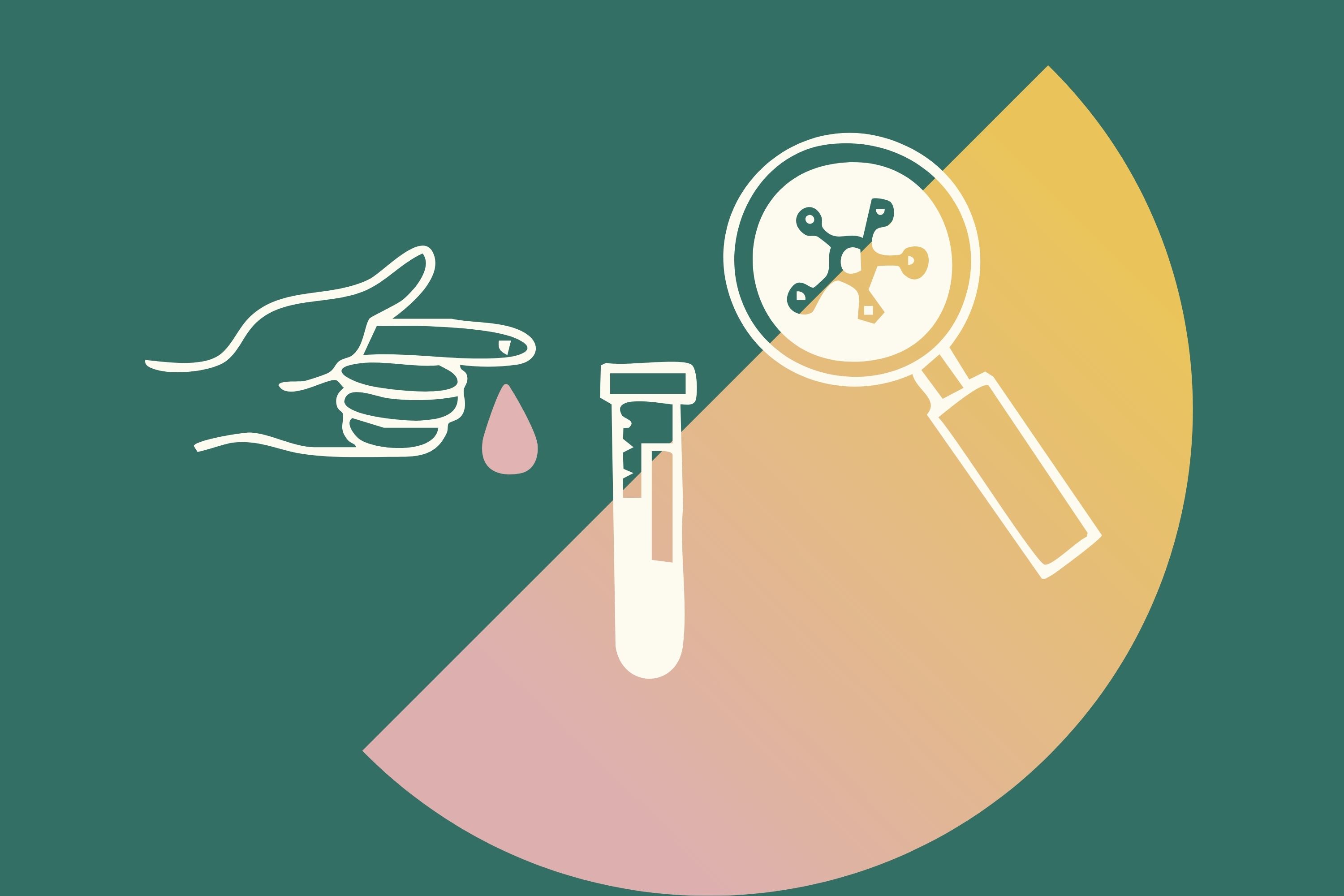A Simpler Way to Detect Alzheimer’s—Now Through a Blood Test

A Simpler Way to Detect Alzheimer’s—Now Through a Blood Test
In May 2025, the U.S. FDA approved Lumipulse G pTau217/ß-Amyloid 1-42 Plasma Ratio (the Lumipulse test), the first-ever blood test cleared to help diagnose Alzheimer’s disease (AD), which accounts for as much as 60-70% of dementia cases. As a blood-based biomarker for Alzheimer’s pathology in the brain, the Lumipulse test represents a more accessible and less invasive option to traditional diagnostic tools like spinal taps or PET scans, one that will save both money and exposure to radiation for eligible patients. However, it’s important to note that no blood test —Lumipulse or otherwise—can actually diagnose AD.
Let’s take a closer look at why this approval represents an exciting and important new development for those experiencing problems with memory and thinking.
What the Lumipulse test Is:
- A diagnostic aid for people aged 55 and older who have begun experiencing symptoms of cognitive decline (e.g., memory loss, word-finding difficulty, or confusion).
- Used in combination with other clinical evaluations (e.g., cognitive testing, brain imaging, or spinal fluid analysis) to help determine whether the pathology of AD is likely present.
What It Is Not:
- . . . a screening tool for individuals without symptoms.
- . . . meant for routine annual checkups like a cholesterol test or mammogram.
- . . . a standalone tool for the diagnosis of Alzheimer’s disease. The Lumipulse test provides evidence that amyloid pathology is present, a finding that must be interpreted by a specialist.
- … a genetic test to identify the presence of the APOE4 variant or other inherited risk factors for dementia.
What the Lumipulse Test Measures—and Why That Matters
The Lumipulse test examines two key proteins in the blood: ß-Amyloid 1-42 and p-tau-217. These proteins are central to the pathological cascade that culminates in AD, a cascade that begins years (likely decades) before clinical symptoms appear.
- ß-Amyloid 1-42 is a protein fragment that clumps together in the brain to form the famous (infamous) amyloid plaques in AD. Amyloid plaques interfere with communication between brain cells and are considered one of the earliest signs of Alzheimer’s pathology, making them both an early warning sign and a treatment target.
- P-tau217 is a variant of the tau protein, which normally helps stabilize neuronal structure. In AD, the tau protein undergoes abnormal modification and forms the famous (infamous) neurofibrillary tangles inside brain cells. These tangles disrupt cell function and eventually cause cell death.
The Lumipulse test doesn’t just look for whether these two proteins are present—it measures the ratio between them. When p-tau-217 levels are high relative to ß-Amyloid 1-42 (a positive ratio), the ratio strongly suggests amyloid plaques are building up in the brain—the hallmark of Alzheimer's pathology.
However, having an abnormal ratio does NOT mean someone definitely has Alzheimer’s disease, and a normal result doesn’t guarantee they don’t. The test is most useful for people who are already experiencing symptoms, like memory trouble or confusion. When used, it is always one part of a comprehensive diagnostic process overseen by a trained specialist.
That’s why the FDA approved Lumipulse specifically for people age 55 or older who are already showing signs of cognitive impairment. It is not a screening tool for the general public or for people without symptoms. Using the test outside of this context can lead to unnecessary worry, confusion, or even misdiagnosis.
Why This Clearance Is Generating Excitement
The FDA’s clearance of the Lumipulse test marks a significant step forward in how we detect and manage AD. Until now, assessing the likelihood that amyloid plaques were present required either a PET scan, which is expensive and involves radiation, or a spinal tap, which is uncomfortable, also involves radiation, and can be difficult to access. In contrast, the Lumipulse test relies on a simple blood draw, making it far more accessible for older adults.
What’s more, Lumipulse has demonstrated impressive accuracy. In clinical studies involving nearly 500 people with memory symptoms, the test correctly identified Alzheimer’s-related brain changes in about 92% of positive cases and ruled them out in over 97% of negative ones. This makes it a valuable tool for doctors working to determine whether Alzheimer’s pathology underlies someone’s symptoms.
Perhaps most exciting is the potential for the Lumipulse test to accelerate the path to treatment. New disease-modifying medications in AD, such as Leqembi and Kisunla, explicitly target the early stages of the disease—but only in patients with confirmed amyloid buildup in the brain. The Lumipulse test can help determine who is eligible for treatment, both more quickly and more affordably than previous methods.
Finally, the Lumipulse test signals a broader shift in Alzheimer’s care, one mirroring how blood-based biomarkers have transformed other areas of medicine. Just as the hemoglobin A1C test revolutionized the diagnosis and monitoring of diabetes, and cholesterol testing redefined how we prevent and manage heart disease, the Lumipulse test has the potential to make Alzheimer’s diagnosis earlier and more actionable than at any time in human history.
Why You Still Need a Cognitive Clinical Specialist
The Lumipulse test must be ordered and interpreted by Alzheimer’s specialists—typically cognitive neurologists, such as those on Sunday Health’s clinical team. They will review:
- Medical history and perform detailed cognitive and/or neuropsychological testing,
- Blood-based biomarker results (like the Lumipulse test),
- Brain MRI scans,
- And possibly, PET scans or spinal fluid analysis for confirmation.
Many other issues—medication side effects, mood disorders, sleep problems, vitamin deficiencies, or other types of dementia—can mimic Alzheimer’s. A clinical cognitive specialist ensures an accurate diagnosis and avoids unnecessary or harmful treatment.
About Sunday Health
Sunday Health is a modern cognitive care practice. We help individuals preserve cognitive function and maintain personal agency longer. We operate across all of DC-MD-VA, serving patients at risk for or living with Mild Cognitive Impairment (MCI) or early dementia. We are currently accepting new patients, with or without a referral and can generally schedule first appointments within two weeks.
Sunday Health accepts Medicare and other major commercial insurance. Our clinical team includes experienced dementia-specialized neurologists, nurse practitioners, and care navigators, all with a strong grasp of emerging diagnostics and standards of care. If you or someone close to you is starting to notice memory or thinking changes, don’t put it off. We’re here to help you figure out what’s going on and support your brain health.




